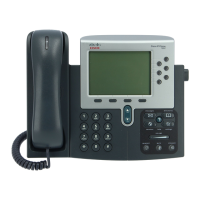• Profile_Rule
• Profile_Rule_*
• Resync_Trigger_*
• Upgrade_Rule
• Log_*
• GPP_* (under specific conditions)
Within these parameters, syntax types, such as $NAME or $(NAME), are recognized and expanded.
Macro variable substrings can be specified with the notation $(NAME:p) and $(NAME:p:q), where p and q
are non-negative integers (available in revision 2.0.11 and above). The resulting macro expansion is the
substring starting at character offset p, with length q (or else till end-of-string if q is not specified). For example,
if GPP_A contains ABCDEF, then $(A:2) expands to CDEF, and $(A:2:3) expands to CDE.
An unrecognized name is not translated, and the $NAME or $(NAME) form remains unchanged in the
parameter value after expansion.
Description and Default ValueParameter Name
The form $$ expands to a single $ character.$
Replaced by the contents of the general purpose
parameters GPP_A through GPP_P.
A through P
Replaced by special purpose parameters GPP_SA
through GPP_SD. These parameters hold keys or
passwords used in provisioning.
$SA through $SD are recognized as
arguments to the optional resync URL
qualifier, --key.
Note
SA through SD
MAC address using lower case hex digits, for
example, 000e08aabbcc.
MA
MAC address using upper case hex digits, for example
000E08AABBCC.
MAU
MAC address using lower case hex digits, and colons
to separate hex digit pairs. For example
00:0e:08:aa:bb:cc.
MAC
Product Name. For example, CP-8841-3PCC.PN
Product Series Number. For example, V03.PSN
Serial Number string. for example 88012BA01234.SN
SSL Client Certificate status: Installed or Not
Installed.
CCERT
Cisco IP Phone 8800 Series Multiplatform Phone Administration Guide for Release 11.3(1) and Later
74
Cisco IP Phone Provisioning
Macro Expansion Variables

